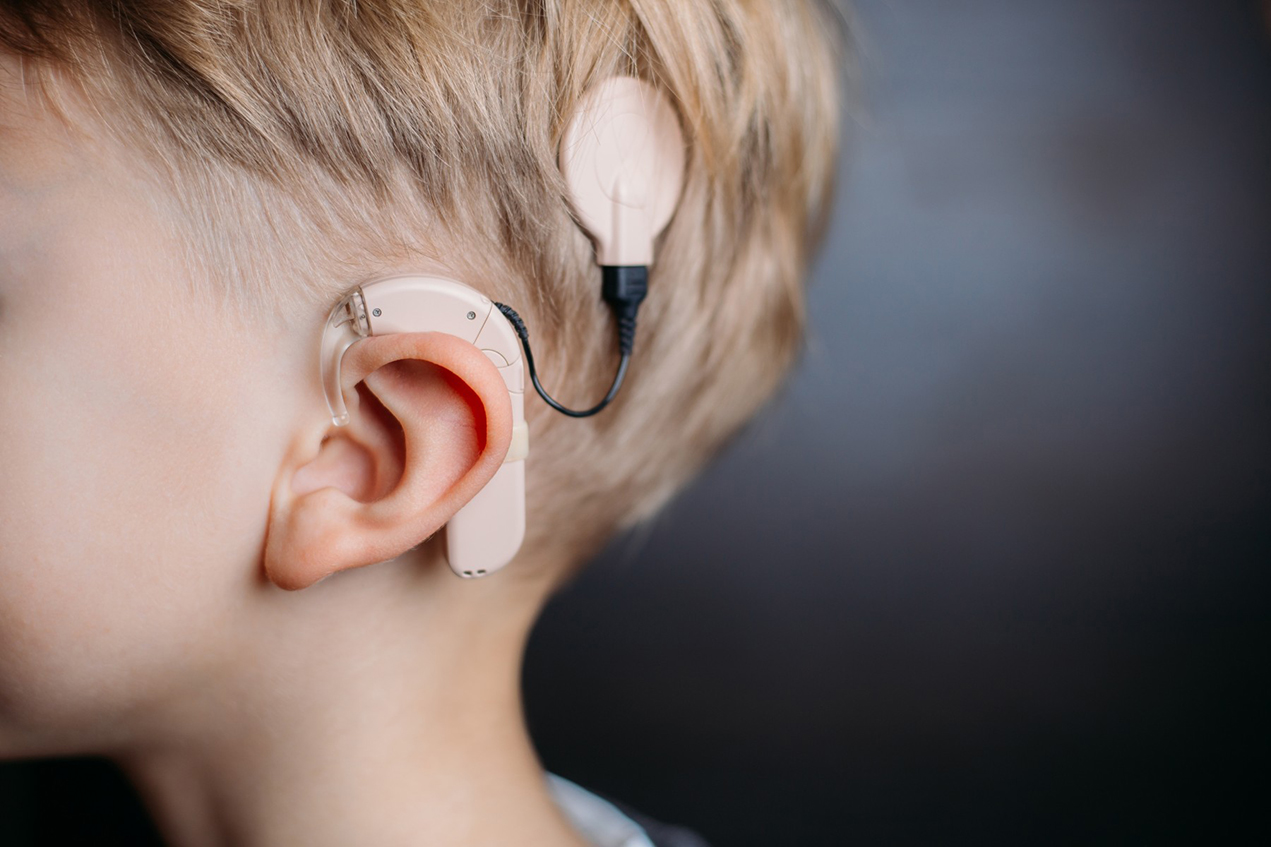Up to three out of every 1,000 infants in the United States are born with profound hearing loss.
Typically, infants with hearing loss are first treated with hearing aids, and if these fail to help them develop early language and speech skills, they then become eligible for cochlear implants at 12 months or older. Cochlear implants — considered the gold standard of treatment — are small, electronic devices surgically placed under the skin that stimulate nerve endings in the ear to provide a sense of sound.
However, some insurance companies have traditionally denied coverage of cochlear implants to deaf children with severe developmental delays (such as low cognitive skills and low adaptive, or learned, behavior), under the belief that the implants will not help them learn to communicate.
Now, a new study from Keck Medicine of USC has found that infants with hearing loss and severe developmental delays are better served with cochlear implants than hearing aids.
To continue reading this story, click here.


